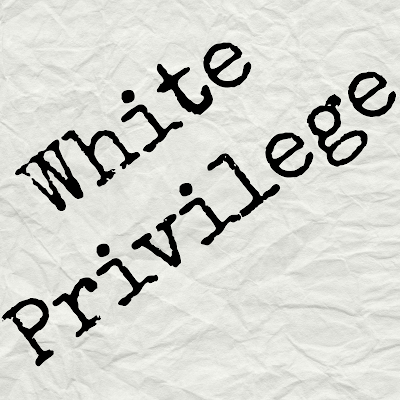White Privilege
I know this is an incredibly controversial topic and the
title has caused most people to metaphorically sidestep and keep scrolling, so
for those of you who actually read this I swear I’ll keep it brief! First, I’d like to weed out the trolls; if you’re
not genuinely interested in gaining some insight then do me a favor and hit the
“back” button now. No one can force you to open your mind, you have to
WANT to and I have no interest in arguing with you.
White privilege is not something white people choose to
have or that they wake up intending to wave it in the faces of people of color.
It’s something that you’re born with through no fault of your own. So often
people take the term as a personal onslaught and immediately go on the defensive
but that is the narrative that needs to change in order for real progress to be
made.
Peggy Mackintosh did a study on white privilege in 1988 and her paper is often referenced in the matter. She does an
excellent job of breaking it down Kindergarten style so it’s easily relatable
by the general public. My goal is to show you a few snippets of the issue and
plant the seed of possibility in your mind. If society in large, doesn’t
believe there is a problem then of course they won’t work to solve it. When
reading the points I’ll list below, try to reject the idea that if you don’t
experience it then it doesn’t exist. It’s an incredibly easy mindset to unknowingly
slip into. Think of it as if you’re saying the pain your neighbor experiences
doesn’t exist or isn’t valid unless you believe in it and of course that isn’t
true. That cannot be OUR truth, we cannot allow it.
I’ve narrowed Peggy’s 50 talking points down to 15 and
added in some of my own explanation.
1. I
can be pretty sure that my neighbors will be neutral or pleasant to me.
2. I
can go shopping alone most of the time, pretty well assured that I will not be
followed or harassed.
3. I
can turn on the television or open to the front page of the paper and see
people of my race widely represented.
4. When
I am told about our national heritage or about “civilization,” I am shown that
people of my color made it what it is.
5.
Whether I use checks, credit cards or cash, I can count on my skin color not to
work against the appearance of financial reliability.
6. I
can arrange to protect my children most of the time from people who might not
like them.
7. I do
not have to educate my children to be aware of systemic racism for their own
daily physical protection.
8. I
can be pretty sure that my children’s teachers and employers will tolerate them
if they fit school and workplace norms; my chief worries about them do not concern
others’ attitudes toward their race.
9. I
can talk with my mouth full and not have people put this down to my color.
10. I
can swear, or dress in second hand clothes, or not answer letters, without
having people attribute these choices to the bad morals, the poverty or the
illiteracy of my race.
11. I
can criticize our government and talk about how much I fear its policies and
behavior without being seen as a cultural outsider.
12. I
can easily buy posters, post-cards, picture books, greeting cards, dolls, toys
and children’s magazines featuring people of my race.
13. I
can worry about racism without being seen as self-interested or self-seeking.
14. I
can take a job with an affirmative action employer without having my co-workers
on the job suspect that I got it because of my race.
15. I
will feel welcomed and “normal” in the usual walks of public life,
institutional and social.
If you doubt the validity of any of these points I
challenge you to have a candid conversation with a person of color and see their
view on it. Knowledge is a gift and a curse because once you have it, you feel
a moral obligation to do something about it. It’s much easier to remain
ignorant and move through life accepting the status quo. The problem with
that is your lack of action becomes like a clog in a water main that already has too many kinks and curves and you've inadvertently slowed down progress for those striving for change. We as a nation have to come together, acknowledge the inconsistences that
are inherently woven into our society and take action to change it. It begins
with being aware and open to the idea that experiences outside of your own can
be truth and have validity. If you can grasp that then you’re one more person
in a growing mass of people who are awake and willing to take a step toward a
better tomorrow for all of us.



Comments
Post a Comment